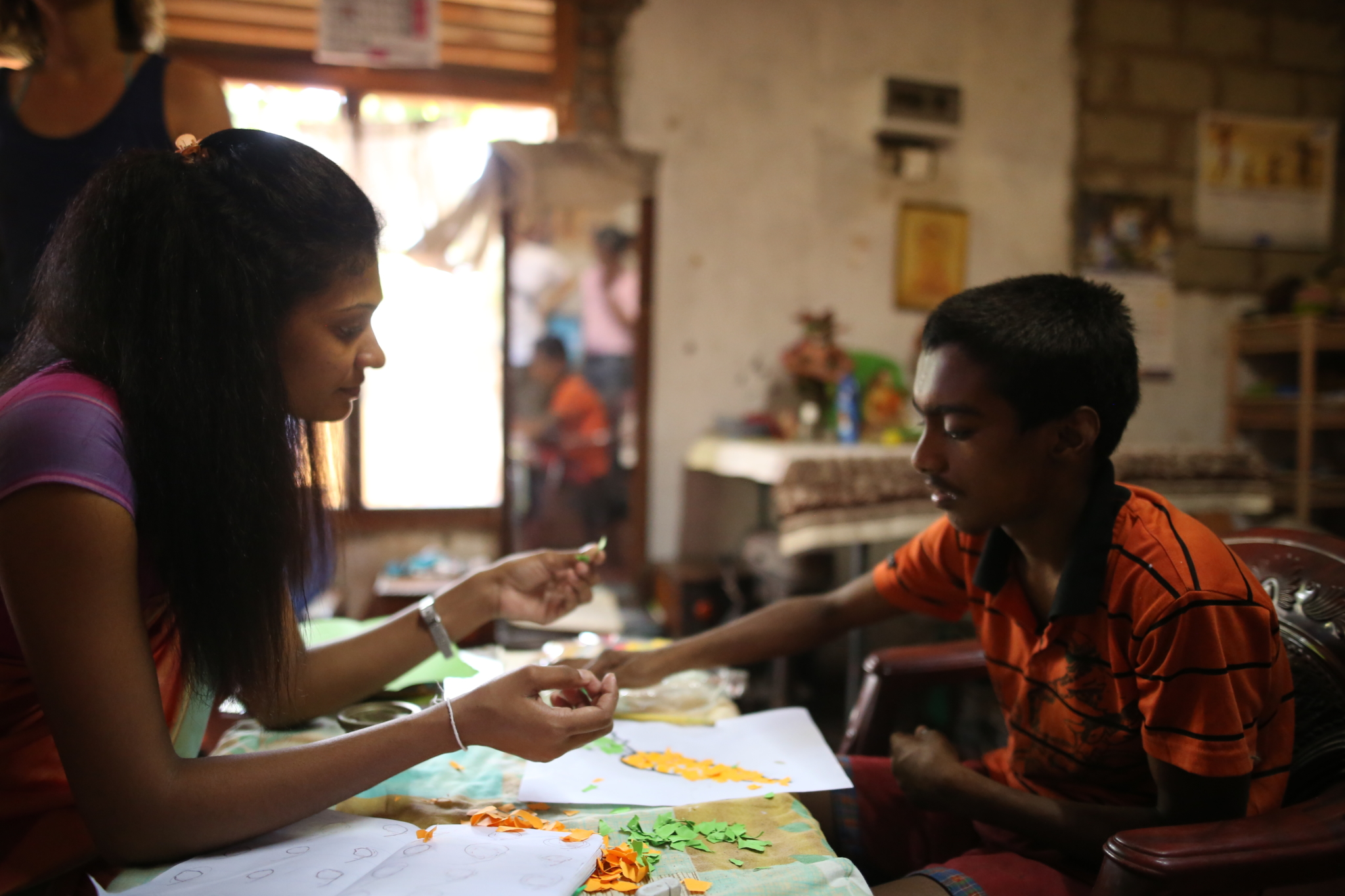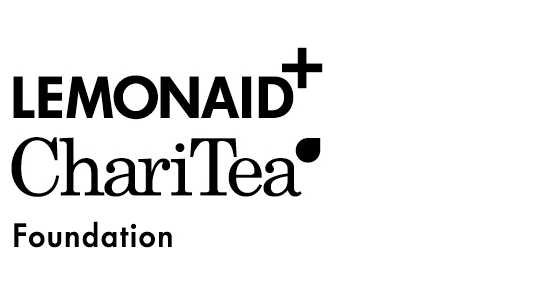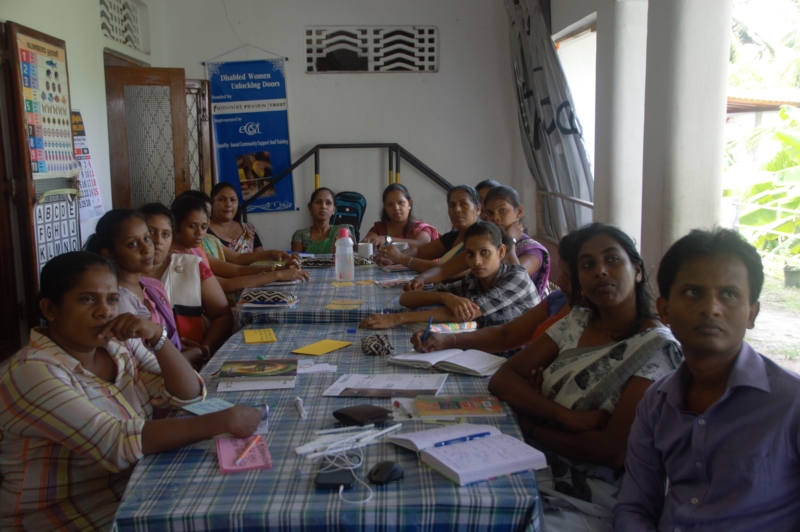In July 2017 the Lemonaid & ChariTea Foundation started supporting the development program of the NGO ‘Equality-based Community Support and Training’ (ECSAT). The NGO has tasked itself with the establishment of trainings and capacity building programs for people with disabilities and their families around Galle in southern Sri Lanka. Main aim is to contribute to a more inclusive community.
ECSAT is a charitable organisation founded in 2005 in Galle, Sri Lanka. The region around Galle was very badly damaged by the tsunami at the end of 2004. During this time ECSAT supported thousands of affected people with and without disabilities in order to recover relatively quickly from the devastation.
Today the work of ECSAT is still focusing on the inclusion of people with disabilities and their families. ECSAT has already had a strong impact throughout the region around Galle and Matara. Their programs include various courses and vocational training, as well as therapeutic and outreaching care services for people with different impairments. In addition, locally produced handcrafts are distributed through ECSAT. As a result the capacity building of communities and the development of livelihood is supported. The work of ECSAT encourages an inclusive and equal society in Sri Lanka in which a better integration of disabled people into the communities can take place.
Development of competences for people with disabilities
The current projects carried out by ECSAT include training and development programs for people with disabilities. The ‘Transforming Livelihoods and Lives’-program is aiming to facilitate the lives of 150 participants and their families. In this context the practical skills of the participants are trained to contribute to the development of self-confidence and independence.

A lack of understanding and knowledge about disabilities in the Sri Lankan society has led to the fact that some parents do not integrate their children into society and do not enable them to live independently. ECSAT addresses this problem through information campaigns and the provision of education, vocational training and improvements that facilitate the daily lives of entire families. The participants have the possibility to be trained in various fields such as crafts, gardening or cooking. The promotion takes place according to individual capacity and interest, as well as skills and abilities. The trainings enable people to have an easier access to work and potentially generate own income which contributes to the family income. Six months after the project implementation the organization notes:
‘Parents as well as neighbours and family members are happy about the progress of the beneficiaries. Supporters of our project who come for a visit are surprised about the ambitions of the project and show themselves very interested and satisfied.’
Capacity building for communities in Sri Lanka
The aim of the program is to secure the livelihood of the participants and thus to increase their own quality of life and the one of the family members. The involvement of participants in professional occupations results in a positive attitude towards people with disabilities and a better integration into the communities. This can be seen as a way to counter discrimination and social exclusion and to strengthen the rights of disabled persons.
Through the financial support of the Lemonaid & ChariTea Foundation the continuation of a sustainable work of ECSAT and the expansion of their services is facilitated. In addition to the financing of the trainers and the provision of necessary infrastructure, a suitable piece of land will be acquired later this year. Through this acquisition ECSAT wants to increase its capacity and ensure wheelchair friendly access to all buildings.
With the implementation of this project ECSAT manages to disccover and encourage the potential and abilities of each participant. Thus enabling the families and entire communities to gain a better understanding of how to deal with and how to support people with disabilities.



